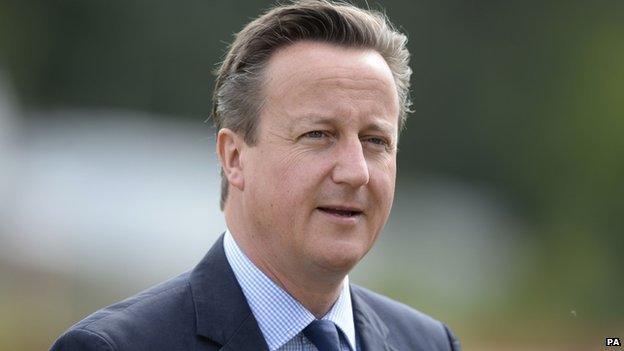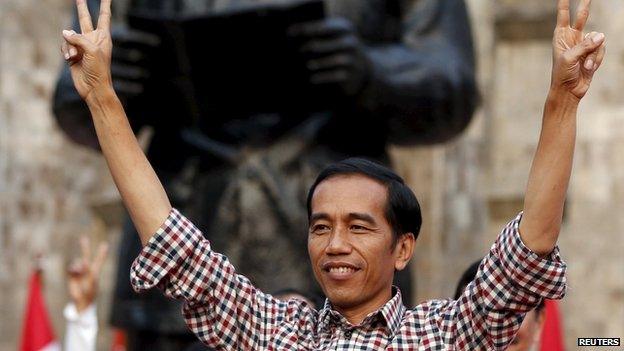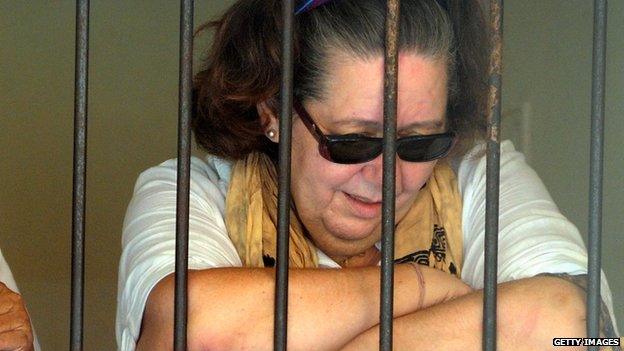Analysis: Why is David Cameron touring South East Asia?
- Published

You might have thought David Cameron would mark the start of the political holiday season with a cold beer and crab sandwich beside the surf in Cornwall.
After all, the spring's election slog delivered a surprise Conservative majority and the prime minister has rarely looked so secure or confident in the job.
But instead of a week's chillaxing, Mr Cameron is filling a plane with business leaders and heading to the furthest corners of South East Asia.
Beyond the EU
His crammed itinerary will take in Indonesia, Malaysia, Vietnam and Singapore on a whistle-stop trade mission, the first of this Parliament. So what does the prime minster hope to achieve from the trip?
Last week, Mr Cameron said Britain needed to go "to the ends of the earth" to sell its wares.
While the EU remains Britain's biggest trading partner, Mr Cameron has been clear the UK needs to look beyond Europe, an ambition mirrored by frustration at the EU's level of competitiveness and regulation.
These are priorities in Mr Cameron's renegotiation of Britain's membership with the EU. And as that grinds on, the prime minster is sending a clear signal Britain must also look east.
Not just to India and China; but to the largely untapped potential of South East Asia as well. By 2030, the region is expected to be the fourth-largest single market in the world.
Charm offensive
As Mr Cameron said last week, Britain is still selling more to Hungary than to Indonesia, even though Indonesia is 25 times bigger.
Britain does more trade with Belgium than it does with Indonesia, Malaysia, Vietnam and Singapore combined.

New Indonesian President Joko Widodo is keen on overseas trade
The government has a target of doubling UK exports to £1 trillion by 2020 and it sees the booming economies in the east as plum markets for British goods and services as well as sources of direct investment to the UK.
For instance, Indonesia is the world's fourth most populous country, with an economy roughly the same size as Britain's. Its middle class is growing fast and new President Joko Widodo is very keen on attracting overseas investment.
Extremism
It's a similar story in Vietnam and Mr Cameron will be the first British prime minister to visit the country, which has the fastest-growing middle class in South East Asia.
He has already been on a trade charm offensive to Malaysia, back in 2012.
Defence and education are areas British business is pushing hard.
But it's two-way, and a delegation representing the "Northern Powerhouse" will also be on this trip, hoping to tempt investors with regeneration and infrastructure opportunities.
But as well as the business schmooze, other issues are likely to feature on this trip. Both Indonesia and Malaysia are trying to confront Islamist extremism.
Indonesia, the world's biggest Muslim-majority democracy, has seen between 200 and 500 of its citizens join so-called Islamic State (IS) in Syria and Iraq.
Diplomatic tensions
Between 60 and 150 Malaysians are estimated to have done the same and earlier this year a recruitment video emerged featuring young Malay-speaking boys engaging in weapons training in IS-held territory.
The country has recently introduced new anti-terror powers and the prime minister is likely to speak to leaders in both countries about what more can be done to tackle IS and the movement of foreign fighters.
There could also be diplomatic tension in Indonesia when - or if - Mr Cameron raises the case of Lindsay Sandiford, a 58-year-old from Cheltenham who has been on death row in the country since 2013 after arriving in Bali from Thailand carrying cocaine with a street value of £1.6 million.

Lindsay Sandiford, from Cheltenham, is on death row in Indonesia
UK government representations against the sentence have so far been ignored and Ms Sandiford is due to be executed by firing squad.
In April, seven foreign nationals were executed for drug smuggling offences and dozens more are on death row.
President Widodo recently said Indonesia was in a "drug emergency".
While mutually beneficial trade deals will be the ballast of the trip, these new markets present their own obstacles too.